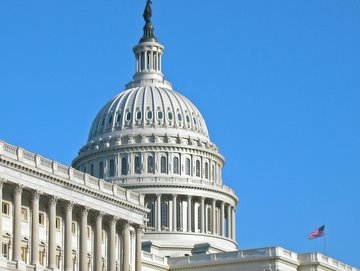| Home | About | Archives | RSS Feed |

The Independent Investor: Gordon Gekko Should Run for Congress
 Did you know that congressmen and senators consistently outperform the stock market year after year? On average, the lower house members beat the market by about 6 percent a year while those of the higher chamber wrack up a 10 percent level of outperformance annually. Now, if you believe that's purely coincidental, well, I have a bridge I can sell you cheap.
Did you know that congressmen and senators consistently outperform the stock market year after year? On average, the lower house members beat the market by about 6 percent a year while those of the higher chamber wrack up a 10 percent level of outperformance annually. Now, if you believe that's purely coincidental, well, I have a bridge I can sell you cheap.
Don't take my word for it. Four university researchers from four different schools poured over 16,000 stock buys and sells of 300 congressmen over a 16-year period and found "significant positive abnormal returns." Five years ago, the same team uncovered even better results when investigating the personal stock transactions of Senators.
As a full-time portfolio manager myself, I know managing money is a 24/7 job that requires an enormous amount of research, experience and time. How can our politicians manage to pull out these startling returns year after year, while serving in Washington, running election campaigns and travelling back home to their constituents?
The university report speculates (without forming a conclusion) that the out performance may have something to do with the ability of members of both houses to trade on non-public information or worse, vote their own pocketbooks.
But wait, how can that be? Isn't trading on insider information illegal?
Well, it turns out that our lawmakers are excluded from the same insider trading rules that have nailed so many Wall Street traders, most recently in The Galleon Insider Trading Case.
Just think how much potential for abnormal profits resides in knowing what bills and appropriations will pass and those that won't. If, for example, a huge contract is awarded to one of our defense companies in a non-public appropriations bill, a member of either house could legally buy the stock ahead of time and even tip off friends, family and possibly their largest campaign contributors.
It may also explain how certain big financial institutions, over the last few years, seem to know exactly how bad or good the country's economic data will be prior to public release. That data has been capable of moving markets substantially either up or down over short periods of time.
Given the U.S. government’s massive intervention in the financial system since 2008, the ability to make piles of money from government actions is immense. Is it any wonder that politicians have adroitly avoided changing the rules that govern their own actions, until now?
A bill introduced by Reps. Louise Slaughter, D-N.Y., and Tim Walz, D-Minn., called the STOCK (Stop Trading on Congressional Knowledge) act was reintroduced in March of this year. It was first introduced in 2006 and predictably went nowhere. The act would "prohibit Members of Congress and federal employees from profiting from nonpublic information they obtain via their official positions, and require greater oversight of the growing 'political intelligence' industry."
"As it stands today, neither members of Congress nor their staff can be held legally accountable for making personal investment decisions based on non-public information," explains Congresswomen Slaughter, "Even more troubling is that unregistered firms might be using Congressional non-public information to make financial transactions at the expense of the average investor. The bill places those individuals under insider trading rules and enhanced disclosure rules."
The act would prevent government employees from disclosing non-public information to anyone if they believe it will be used to buy or sell stocks, bonds or commodities futures. It would also require members of Congress and employees to report the purchase, sale or exchange of securities in excess of $1,000 within 30 days.
"This is a matter of equality under the law," said Congressman Walz, "The same standards we have established for Wall Street should apply to Congress. The potential for abuse is obvious and troubling and there is simply no good reason Congress should get to play by a separate set of rules in the stock market."
Readers may agree that there is something hypocritical about politicians and regulators probing hedge funds for suspicious trading while the very same government officials are able to trade on nonpublic information on current and upcoming congressional activity and give it to their friends as well as hedge funds if they choose.
While I applaud the efforts of Walz and Slaughter, I suspect the chances of STOCK's passage is about as remote as my growing hair again.
Bill Schmick is an independent investor with Berkshire Money Management. (See "About" for more information.) None of the information presented in any of these articles is intended to be and should not be construed as an endorsement of BMM or a solicitation to become a client of BMM. The reader should not assume that any strategies, or specific investments discussed are employed, bought, sold or held by BMM. Direct your inquiries to Bill at (toll free) or e-mail him at wschmick@fairpoint.net. Visit www.afewdollarsmore.com for more of Bill's insights.
| Tags: Congress, SEC, trading |

